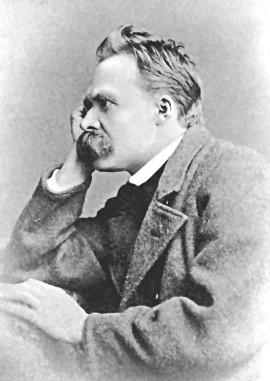Friedrich Nietzsche: I am not a Man! I am Dynamite!
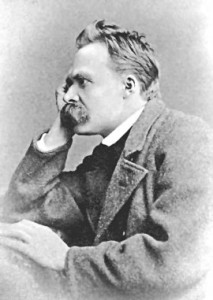
Friedrich Nietzsche was born in Rocken, Germany on October 15, 1844. In July of 1849, Nietzsche’s father, a thirty-five year old minister, died of an indeterminate brain condition, forcing the family to move to the nearby town of Naumburg. Both of these locations are in the Saxony region, former German Democratic Republic, approximately thirty miles southwest of the city of Leipzig.
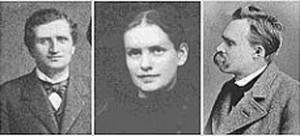
Ree and Salome quickly began to discuss establishing their own intellectual cadre with the participants literally living together in a bohemian utopia, this in an era where a male and female living under the same roof for any reason would be considered scandalous. Into this intrigue, Friedrich Nietzsche finally arrived and a meeting with the couple ensued at St. Peter’s Basilica. His alleged greeting to Lou Salome while Ree was preoccupied with recording his impressions of the cathedral was “From what stars have we fallen here to meet?”
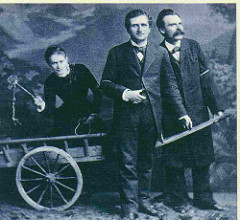
In her self serving memoir written many years later, Lou Salome would claim that in Lucerne, Nietzsche would make his second marriage proposal, the type of awkwardly unrealistic action that probably guaranteed Nietzsche lifelong bachelorhood. Realistically, since Lou Salome’s only income came from her inheritance, a small amount meant only until she married, she wasn’t going to marry anybody, at least not then. From this afternoon also emerged a famous photograph of Lou Salome with a whip of lilacs driving the two philosophers who are tethered to a make believe cart. From there, this strange group scattered, Nietzsche to his home in Naumburg, Ree to his family home near Berlin and both Salome’s to Zurich
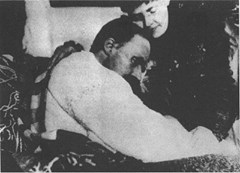
Elizabeth didn’t have the office space in Weimar to accommodate her brother so she quickly persuaded a very wealthy patron and former acquaintance of Nietzsche, Meta Von Salis, to buy a three-story villa as a suitable setting for her brother’s last years. Once the house was purchased, Elizabeth decided it needed some appropriately luxurious improvements and without telling the new owner, went ahead with the new construction. Von Salis was stuck with the bill but at least got the satisfaction of accusing Elizabeth of exploiting the archive for her own benefit. By then, Friedrich Nietzsche was installed as the centerpiece of his sister’s shrine to his work, trotted out occasionally for especially wealthy potential patrons and responding to any visitors with a blank stare. Mercifully, he succumbed to a heart attack on August 25, 1900.
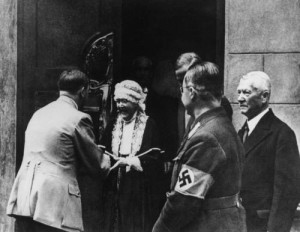
Elizabeth Nietzsche would enthusiastically support the ascendance of Adolf Hitler, inviting him in 1934 to the Nietzsche Archive for a photo op and proclaiming that her brother would have been just as supportive. Hitler had probably read little of Nietzsche’s work but he certainly grasped what the purported endorsement of an internationally famous intellectual would mean to the image of his inner circle, generally perceived as a motley crew of unsophisticated thugs.
Podcast: Play in new window | Download
Subscribe: RSS

